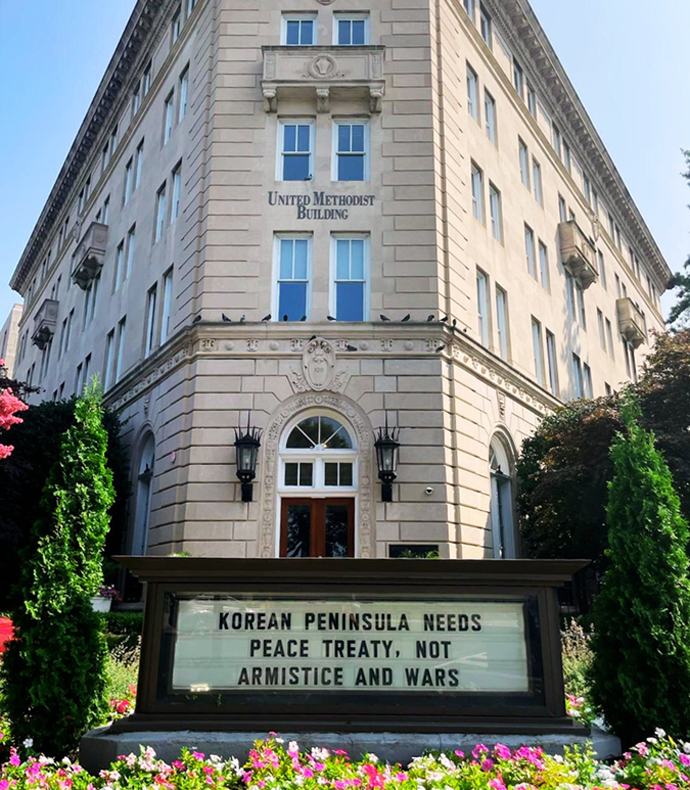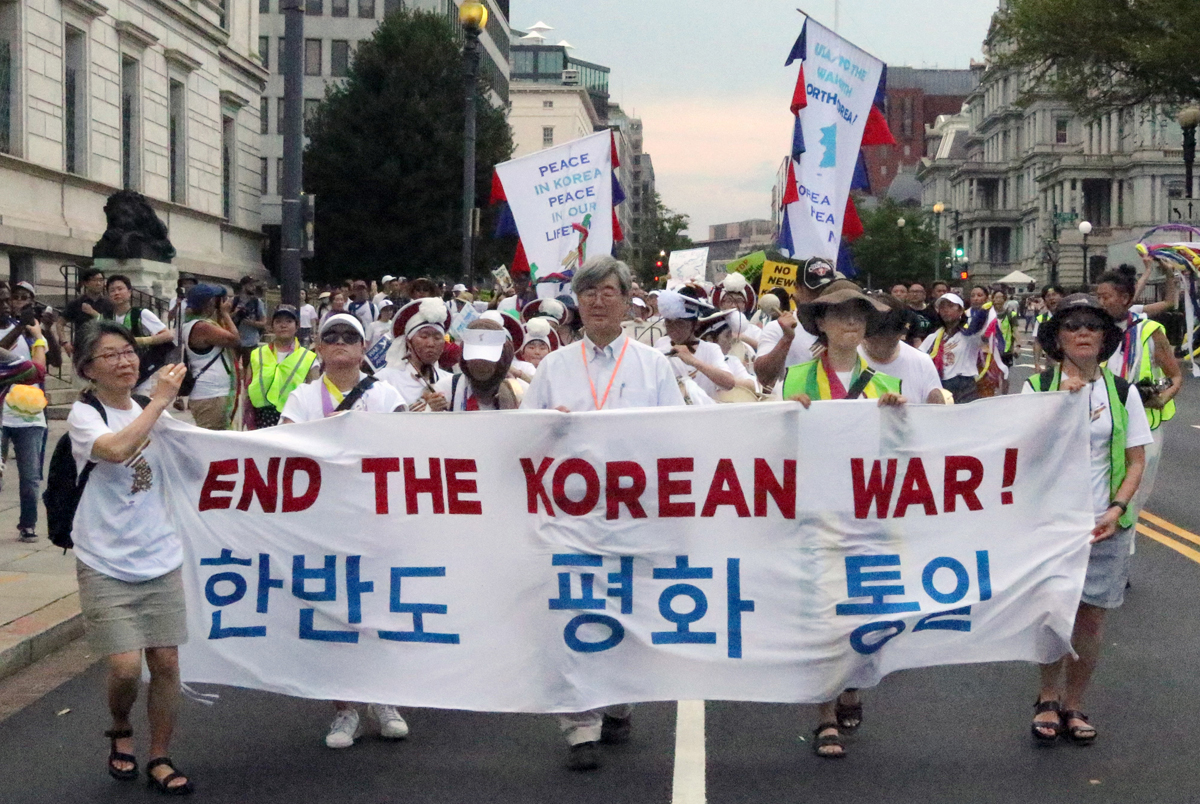Key points:
- This year marks the 70th anniversary of the Armistice Agreement of the Korean War, but since a peace treaty was never negotiated, the war has technically never ended.
- The National Mobilization to End the Korean War was held in Washington, D.C., July 26-28 and was organized by a broad coalition of peace advocates and various faith traditions, including the United Methodist Board of Global Ministries and Board of Church and Society, and the Peace Committee of the Korean Association of The United Methodist Church.
- Christians worldwide — including the World Council of Churches, the National Council of Churches in Korea and The United Methodist Church — have called for an end-of-war agreement and a peace treaty.
On July 27, the 70th anniversary of the Armistice Agreement of the Korean War, known as the “Forgotten War,” hundreds of Korean peace advocates from across the country and South Korea gathered in Washington, D.C., for Korea Peace Action.
It was part of a three-day convening called National Mobilization to End the Korean War, which was held July 26-28 and organized by a broad coalition of peace advocates and various faith traditions, including the United Methodist Board of Global Ministries and Board of Church and Society, and the Peace Committee of the Korean Association of The United Methodist Church.
One of the primary goals of the convening is to mobilize support for the Peace on the Korean Peninsula Act (H.R. 1369), which calls for a peace agreement with North Korea. Christians worldwide — including the World Council of Churches, the National Council of Churches in Korea and The United Methodist Church — have called for an end-of-war agreement and a peace treaty.
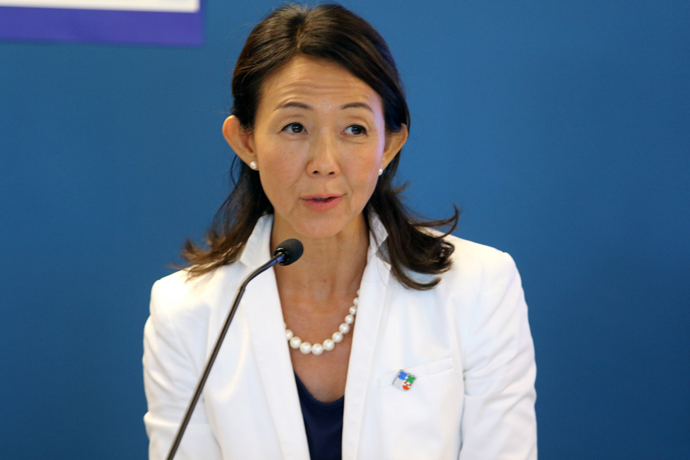
Christine Ahn, executive director of Women Cross DMZ and one of the event organizers, shared the purpose of the gathering with UM News.
“It’s to be together, to be energized, and to know that we are an unstoppable (Korea Peace) movement,” she said. “We’re multigenerational, multinational. We represent families, divided families, military and nuclear scientists are here. It is the power of the people and we will end this war.”
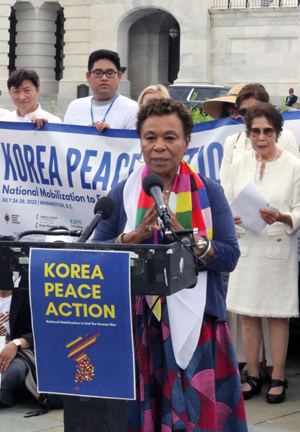
“On the 70th anniversary of the Korean armistice, we’re gathering to urgently call for a true end of the war, which is America's longest overseas conflict,” said Lee, who has visited the Demilitarized Zone in Korea. “The recent detention of American soldier Travis King is another reminder of the lack of diplomatic relations between our country. Ending the war and investing in peace in the region is absolutely essential.”
There were a number of United Methodists at the press conference, including Illinois Rep. Delia Catalina Ramirez, who said that her faith and the importance of her participation in peace and justice actions led her to join the press conference.
“I learned about public service at (Albany United Methodist) Church and got to work there for 13 years,” she said. “When I walk into the chambers, I am reminded that God has called me to be able to live out my faith through action and representation. That's what I take with me every single day into that chamber.”
Roland Fernandes, the top executive of the Board of Global Ministries, also came to participate in the gathering and to express his and his organization’s commitment to peace and justice. Global Ministries is one of the event’s nine convenors.
“I am here because this is an essential issue for me personally and also for the Board of Global Ministries for many years supporting this peace movement,” he said. “GBGM has been committed to peace and justice issues globally and nationally. It is the 70th anniversary, and it is getting longer.”
Global Ministries is also part of the Roundtable for Peace on the Korean Peninsula, which will be held in August in Korea with the World Methodist Council and the Korean Methodist Church.
“It is important to advocate peace and justice. We really hope this movement brings the end of separation (of the two Koreas),” Fernandes said.
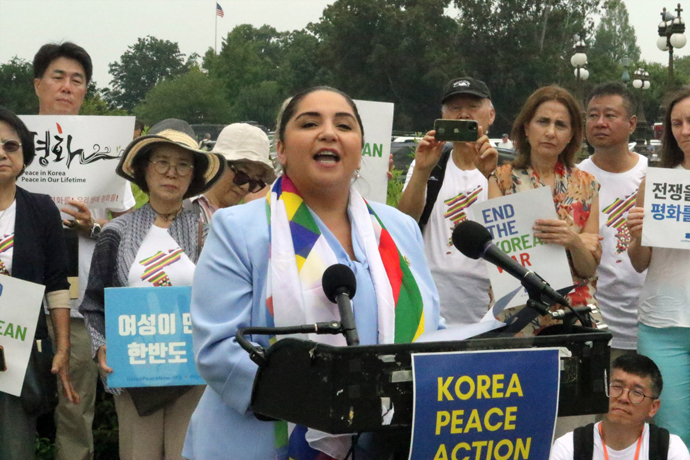
Hundreds of people joined a rally held at Lafayette Square in front of the White House, followed by a march and an interfaith vigil at the Lincoln Memorial on the afternoon and evening of the July 27 anniversary of the Armistice.
Though the weather was hot, it didn't subdue the participants’ enthusiasm during the rally and march.
One of the most moving witnesses at the rally came from the Rev. Wehyun Chang, the chair of the Peace Committee of the Korean Association of The United Methodist Church. He shared his own family’s suffering from the separation of Koreans.
More about the armistice
They were preparing to leave North Korea in January 1951, but because of severe winter weather conditions that year, his father’s younger sister had to remain behind. His father promised her that he'd be back in three or four months, but upon his death 57 years later in 2007, he had never been able to return.
“Can you imagine being separated from family for, let's say, seven months? Would you be OK with that? Seventy years? President Biden, please end the war and bring me and millions of families to see our own loved ones. That's the only humane thing to do,” he said.
Chang also called to remember over 36,000 American soldiers who died during the Korean War, adding, “I don't think a single of them sacrificed their lives thinking that this war lasts for 70 years.”
During the interfaith vigil at the Lincoln Memorial, led by the Rev. Charles Ryu from the New York Conference, the Bible passages from Ezekiel 37:15-22 and John 13:34-35 were read with hopeful minds and prayer for reuniting the two countries and loving each other.
Ryu led a prayer of confession, the sin in thoughts, words and in what they have done and have failed to do.
“We sinned by allowing our nation to collectively forget this war, though it is yet unended. We sinned by breaking our promises in agreements with the (Democratic People's Republic of Korea). We sin by profiting from the militarization of Korea, earning money from weapons sales through our stocks, bonds and retirement portfolios. We sin in our indifference to the suffering and humanity of the Korean people.”
The final day of the event was a conference held at George Washington University with the theme “70th Anniversary of the Korean War Armistice: Prospects and Challenges for a Peace Agreement.”
The keynote address was given by Dr. Bruce Cumings, University of Chicago Emeritus Professor and eminent Korea historian, and he alarmed the audience that war is still near, quoting Robert Gastes’ words, “How close we came to a new war in 2010,” and Leon Panetta’s “within an inch of war” for months in 2012, and he added, “this is a catastrophic policy failure.”
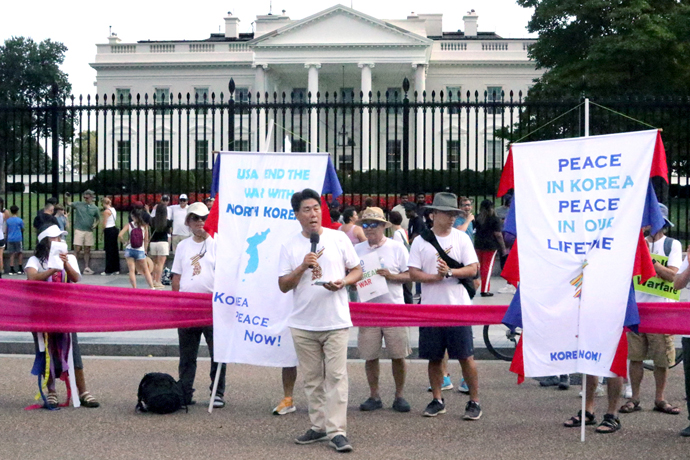
The participants and speakers of the events agreed that a peaceful approach to North Korea is needed.
“North Korea is the most sanctioned country in the world, and it is threatening nuclear war, and Americans don't want that, and Koreans don't want that either. So it's time for a new approach, and we are calling for a peace-first approach, not peace at the end of North Korea giving up its nuclear weapons because that won't happen,” Christine Ahn said.
Subscribe to our
e-newsletter
She added that peace is the foundation from which many good things can spring, such as improved humanitarian conditions for North Korean people, improved human rights and removing the threat of nuclear war.
The Rev. Doug Asbury, a retired pastor from the Northern Illinois Conference and a member of Korea Peace Now!, explained why the Peace Treaty is needed from a Christian perspective.
“We want to be faithful to Jesus Christ, who would walk across the DMZ at the risk of his own life to bring healing to North Koreans, and would sacrifice his life. He did sacrifice his life so that we would devote ourselves to him and his purpose in the world,” he said.
“So, when are we going to be true Christians and follow Jesus rather than the forces of war in this world?”
Kim is director of Korean and Asian news at United Methodist Communications. Contact him at 615-742-5470 or newsdesk@umcom.org. To read more United Methodist news, subscribe to the free Daily or Weekly Digests.
